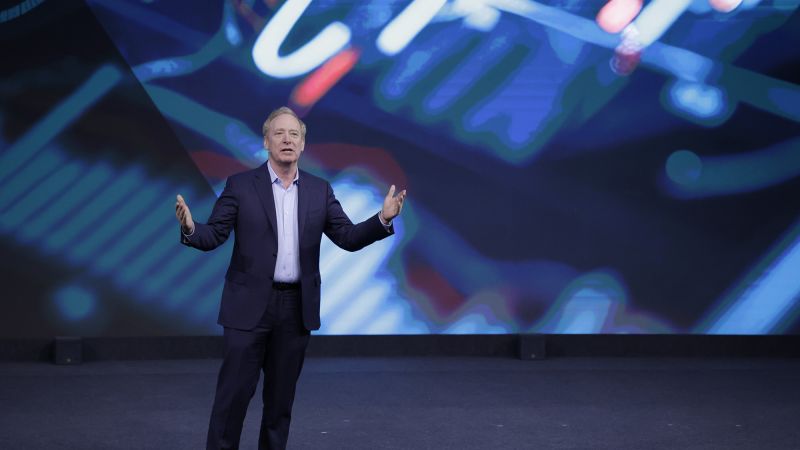Microsoft is set to invest $1.5 billion in Abu Dhabi’s G42, an artificial intelligence group that has come under scrutiny for its alleged ties to China. The collaboration will focus on AI and digital infrastructure, marking Microsoft’s foray into the Middle East. G42, led by Chinese businessman Peng Xiao, has faced accusations of possible connections to Beijing, which led to concerns from US officials about the sharing of American technology with the Chinese government. Xiao has refuted these claims as misinformation, stating that G42 and Microsoft are committed to adhering to US and international trade rules in their partnership. Microsoft President Brad Smith will also join the G42 board as part of the deal, with a focus on bringing AI and digital services to underserved nations.
Last year, G42 introduced an Arabic-language AI model named “Jais,” which is now available on Microsoft’s Azure platform. Microsoft has been actively forming partnerships with various AI companies to solidify its position as a leader in the technological field. Its collaboration with OpenAI has been crucial to Microsoft’s growth over the past year, but it has attracted regulatory interest in the US and Europe due to concerns about its increasing dominance. Microsoft has also made significant AI investments abroad, including partnerships with French AI startup Mistral, as well as funding commitments for AI projects in Spain and Germany. According to Smith, these investments signify the birth of a new sector of the economy centered around AI.
The Microsoft-G42 partnership in Abu Dhabi is a strategic move that could potentially attract considerable scrutiny from regulators. G42 has been the subject of controversy due to questions about its ties to China, but both companies have affirmed their commitment to following trade rules in their collaboration. Microsoft’s decision to invest in the Middle East marks its expansion into a new region, with a focus on AI and digital infrastructure. The partnership hopes to bring AI and digital services to countries that have been underserved in these areas.
G42 and Microsoft are focused on promoting AI and digital services to underserved nations through their collaboration. Both companies have stated their commitment to complying with US and international trade regulations in their partnership. Microsoft’s investment in G42 comes at a time when the company is actively pursuing partnerships with AI firms worldwide to establish itself as a leader in the industry. The introduction of an Arabic-language AI model by G42 on Microsoft’s Azure platform highlights the potential impact of this collaboration in the Middle East.
The partnership between Microsoft and G42 reflects a broader trend of increased AI investments by Microsoft in overseas markets. The company has formed partnerships with AI companies in France and pledged funding for AI projects in Spain and Germany. These investments are seen as part of a larger push by Microsoft to capitalize on the growing importance of AI in the global economy. Microsoft’s focus on AI partnerships and investments demonstrates its commitment to staying at the forefront of technological innovation and positioning itself as a key player in the AI sector.
Microsoft’s investment in G42 marks the company’s entry into the Middle East’s AI and digital infrastructure market. The collaboration aims to bring AI and digital services to underserved nations, with a particular focus on complying with US and international trade rules. Despite concerns over G42’s alleged ties to China, both companies have stated their commitment to following regulations in their partnership. Microsoft’s partnerships with AI companies around the world underscore its strategic efforts to establish itself as a leader in the rapidly evolving AI landscape and tap into the potential of a new economy driven by AI technologies.


